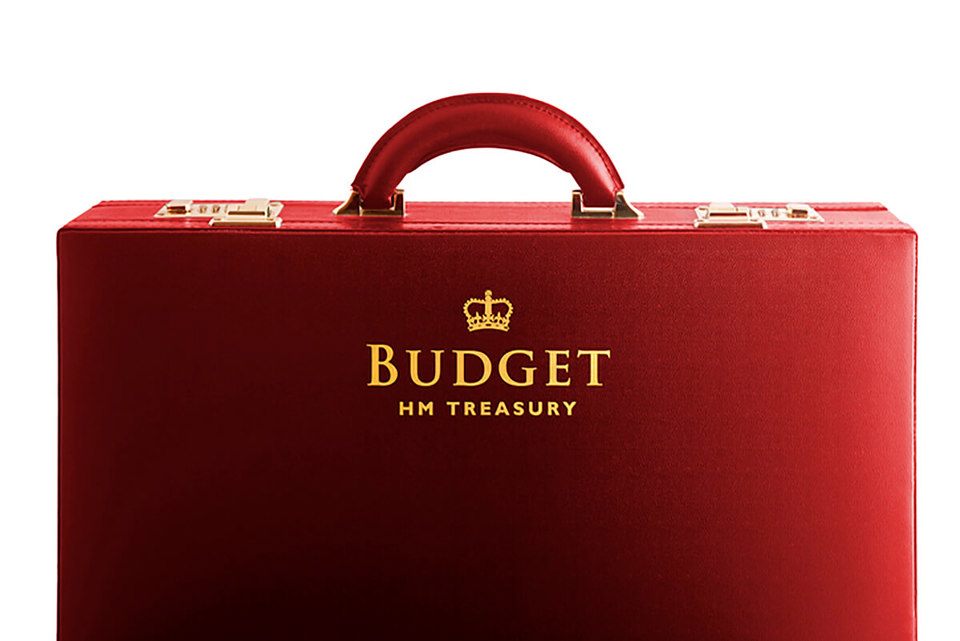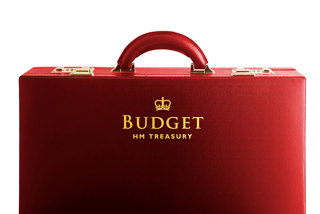The Government has pledged to work with the vehicle leasing and rental industry to try and deliver a more supportive capital allowances regime that will benefit all fleets.
The news comes after the Chancellor announced a replacement for the super deduction, which was introduced in 2021, with fleet operators buying vans and trucks able to benefit from a new policy of ‘full expensing’, in the Budget yesterday (Wednesday, March 15)
It will be introduced for the next three years to boost business investment in an effective cut to corporation tax of £9 billion per year, the Treasury says.
From April 2023 until the end of March 2026, the Chancellor, Jeremy Hunt says that companies can claim 100% capital allowances on qualifying plant and machinery investments.
Plant and machinery that may qualify for full expensing includes (but is not limited to): vehicles such as vans, lorries and tractors (but not cars); machines such as computers, printers, lathes and planers; office equipment such as desks and chairs; warehousing equipment such as forklift trucks, pallet trucks, shelving and stackers; tools such as ladders and drills; and construction equipment such as excavators, compactors, and bulldozers.
However, it will not apply to vehicles leased by companies, as had been called for by the British Vehicle Rental and Leasing Association (BVRLA) and the wider industry.
The BVRLA says that, in conjunction with other stakeholders, it has been invited to engage with HM Treasury to explore how to overcome long-standing exclusions ahead of the next fiscal event in the autumn.
The leasing and rental sectors have historically been excluded from claiming these powerful investment allowances and passing them on to their customers in the form of lower lease or rental rates.
But, in announcing the new allowances, the Government has indicated that it will work with the BVRLA to develop a policy solution that includes this key vehicle acquisition method for the first time.
BVRLA chief executive, Gerry Keaney, said: “The Government has acknowledged how critical vehicle rental and leasing is in driving business investment in cleaner commercial vehicles and infrastructure.
“We look forward to working with them in the coming months to develop a powerful capital allowances regime that can drive even faster decarbonisation of road transport."
What are capital allowances?
Capital allowances allow a business deduct some or all of the cost of an item from its profits before paying tax.
There are different types of capital allowance including: the Annual Investment Allowance (AIA) which allows businesses to claim 100% of the cost of plant and machinery up to £1m in the year it is incurred; Writing Down Allowances (WDAs) which spread the tax deductions over time at 18% and 6% a year for main rate and special rate expenditure respectively; First-Year Allowances (FYAs) which allow a company to claim a percentage of the cost of plant and machinery investments in the year it is incurred; and Structures and Buildings Allowances (SBAs) which allow a business to deduct 3% per year over 33 1/3 years for qualifying expenditure on non-residential structures and buildings.
How does full expensing work?
Full expensing is a 100% first-year allowance which allows companies to claim a deduction from taxable profits that is equal to 100% of their qualifying expenditure in the year that expenditure is incurred.
Expenditure must be incurred on the provision of “main rate” plant or machinery on or after 1 April 2023 but before 1 April 2026.
Full expensing is available to companies subject to Corporation Tax only. Unincorporated businesses cannot claim, but such businesses are entitled to claim the AIA which offers the same benefits as full expensing for the investments it covers (up to £1m per year).
The plant and machinery must be new and unused, must not be a car, given to the company as a gift, or bought to lease to someone else, said the Treasury.
Expenditure on second-hand assets and those bought to lease to someone else can still qualify for the AIA.
For “special rate” expenditure, which doesn’t qualify for full expensing, a 50% first-year allowance can be claimed instead, subject to the same conditions that apply for full expensing.
This means that a company can claim a deduction from taxable profits that is equal to 50% of their qualifying expenditure in the year that expenditure is incurred.
Capital allowances can be claimed on the balance of expenditure in subsequent accounting periods at the 6% rate of WDAs for special rate expenditure.
There is further information on the difference between “main rate” and “special rate” in HMRC’s guidance pages.
Treasury said that the guidance will be updated as soon as possible to help businesses determine whether their investments qualify or not.

What happens when a company sells an asset?
If a company sells an asset on which it has claimed either full expensing or the 50% first-year allowance, there are special disposal rules which apply.
For the disposal of an asset on which a company has claimed full expensing, the company will be required to bring in an immediate balancing charge equal to 100% of the disposal value.
This means that if the company sold an asset for £10,000 on which they had claimed full expensing, they would be required to increase their taxable profits by £10,000.
For the disposal of an asset on which a company has claimed the 50% first-year allowance, the company will be required to bring in a balancing charge equal to 50% of the disposal value.
The remaining balance of 50% is treated in the normal way so is deducted from the special rate pool balance.
This means that if the company sold an asset on which they had claimed the 50% first-year allowance for £10,000, they would be required to increase their taxable profits by £5,000 with the remaining £5,000 being deducted from the pool.
Fuel duty frozen
The Chancellor has frozen fuel duty and maintained the 5 pence per litre (ppl) cut, introduced last year, for a further 12 months.
The move, announced in the Budget today (Wednesday, March 15), avoids a potential 12p rise in fuel duty at the end of the month.
With fleets facing record pump prices at the start of last year, fuel duty was cut by 5ppl in by the then Chancellor, Rishi Sunak, after being frozen at 57.95ppl since 2011.
The reduction in fuel duty, however, was a temporary measure and was due to end this spring.
RAC head of roads policy Nicholas Lyes said: “We welcome the Government’s decision to keep the 5p fuel duty cut in place for another 12 months.
“The cut has given drivers some much-needed relief in what has been the most torrid year ever at the pumps, with price records being broken even after duty was cut.
“Given the importance of driving for consumers and businesses, duty should be kept low to help fight inflation.”
Logistics UK’s chief executive, David Wells, also welcomed the freeze in fuel duty. "Logistics UK has consistently urged Government to extend this cut, while maintaining revenue levels through VAT and other sources.
"Logistics is at the heart of every sector of the economy; this decision recognises the importance of managing logistics costs to avoid further inflationary pressures on business and consumers.”
Domenico Mariconda, CEO at fuel card provider Right Fuel Card, said he had had hoped of a reduced rate or a further price reduction in fuel duty in an attempt to slightly balance out the "volatile and stubbornly high" fuel prices from 2022.
“Whilst pump prices are beginning to decline, they’re still much higher than they ever have been," he explained.
"With customers facing increases in costs across the board, from groceries to energy bills, it’s no surprise that the Government has continued the fuel duty freeze and extended the 5p per litre price cut even further in a bid to combat these costs, and we welcome the initiative that will help keep drivers on the road.
“Whilst overall fuel prices are out of the Government’s hands, we’d hope that consumers will see a fall in prices throughout 2023 in line with the drop in oil prices that we’ve seen in 2022, especially with sustained pressure from a variety of sources.
"We’re also keen to see retailers passing on lower exchange rates to customers, something that’s come under huge criticism in recent months.”
Pothole funding
The Chancellor, Jeremy Hunt, also announced a further £200 million for councils to fix potholes plaguing the country's roads.

RAC head of roads policy, Nicholas Lyes, said: "While welcome, another £200m is unlikely to make a big difference to the overall quality of our dilapidated local roads.
"We need to significantly increase funding for local road maintenance and improvement so councils can resurface roads properly rather than patching them up and hoping for the best.
"Last year the Government spent £1.125 billion on local roads in England which is in stark contrast to the £7bn that went into major roads from car tax, despite local roads covering so many more miles."
Electric vehicle infrastructure
There was nothing from the Chancellor around electric vehicle (EV) infrastructure, however, disappointing many in the fleet sector.
Electric vehicle infrastructure
There was nothing from the Chancellor around electric vehicle (EV) infrastructure, however, disappointing many in the fleet sector.

Nick Williams, transport managing director at Lloyds Banking Group, owners of the UK largest vehicle leasing company, Lex Autolease, said: “It’s disappointing that today’s statement from the Chancellor announced no new support to strengthen the UK’s electric vehicle charging infrastructure.
“It remains impressive that electric vehicles are entering the roads at record rates, but to meet this growing demand we need a charging network that can deliver, both in terms of availability and reliability. To achieve this, rapid expansion will be key.
“With the upcoming Zero Emissions Vehicle mandate also incentivising manufactures to bring more electric vehicles to the UK market, the call for an expanded charging network will be even greater, so the lack of support in today’s Statement is a big setback.
“We’re hopeful that the Government will reveal more plans ahead of its implementation next year, or we risk impacting the longer-term uptake of electric vehicles as confidence in our country’s infrastructure waivers.”
Quentin Willson, founder of EV campaign group FairCharge, believes the Chancellor missed a crucial moment to ensure the UK keeps pace with Europe and the US in the race to net zero.
"This statement was an opportunity to slash the ludicrous VAT differential between public (20%) and home (5%) EV charging, an unfair and outdated policy hindering EV uptake among those without driveways, he added.
"It’s enormously disappointing to see this low-cost intervention once again brushed aside. This is a huge policy failure and the mass adoption of EVs in the UK is being sabotaged by archaic Treasury policy."
Paul Hollick, chair of the Association of Fleet Professionals, would have liked to have seen measures announced ranging from the creation of an EV charging regulator through to national co-ordination on clean air zones, as outlined in our recent tax and regulation manifesto.
However, he said: "There was little content that showed the Government has been thinking about business road transport.
“The one bright point for fleets was the freeze in fuel duty. An increase in 11 pence per litre would’ve been extremely unwelcome at a point in time when the economy is struggling and removing that possibility is very much welcome.
"Further positives are difficult to identify but a recognition that more people need to be encouraged back into the workforce, through pension changes and childcare measures, could potentially help to a degree in a fleet sector where recruitment remains an issue.”
























Rosco7010 - 16/03/2023 10:27
I think it was more interesting what wasn't announced in the budget, than what was. No news on future BiK rates for Company Cars as we approach major policy change for Zero Emission vehicles. Trying to decide whether to offer employees an EV or a car allowance is now a gamble of unknown future tax liability. Current discounts on EV BiK could be lost within a normal 4 year contract duration. How is a fleet manager meant to operate when an employee could get penalised within the contract period.